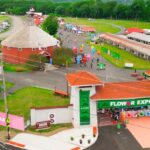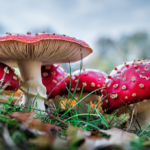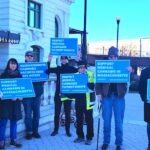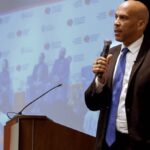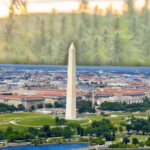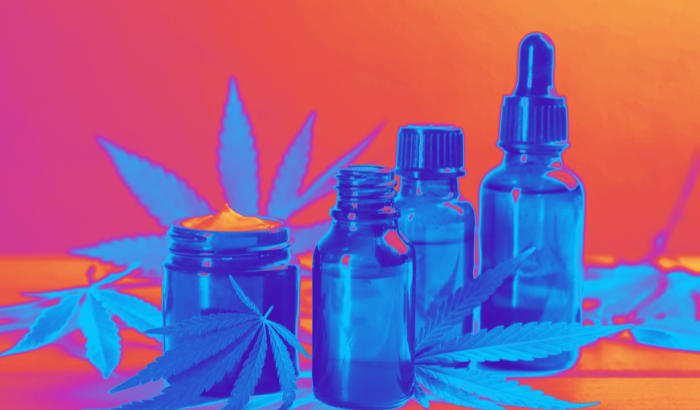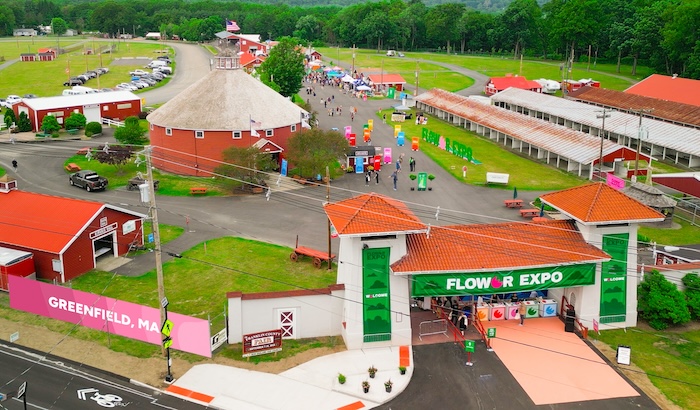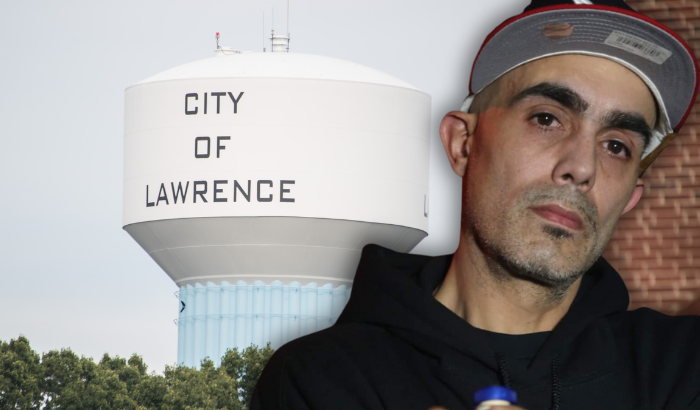
“Everybody else had some kind of help, but we were cannabis related, so there was no help for us.”
This article is part of a Boston Institute for Nonprofit Journalism series retracing the Merrimack Valley gas explosions five years after the tragedy shook Andover, Lawrence, and North Andover, Massachusetts. You can read and explore the complete coverage here.
Most stories about the social consumption of cannabis in Massachusetts haven’t been written yet. Others are currently in the making. But to comprehend the saga of the former GTG Clubhouse in Lawrence, we have to revisit a moment prior to the COVID-19 pandemic, and warp back to just months before the first adult-use dispensary sale in the state in November 2018.
By the time legalization bore fruit-flavored gummies, David Perez had been cultivating underground in the Merrimack Valley for two decades. Before his dad passed away nearly 20 years ago, the father and son started growing their own plants to assist with the former’s cancer. “We were using fish tank lights,” David recalled. “We didn’t know what we were doing.” After losing his dad, he said, “I was going to learn how to do it for real.”
His quest led him to the craft bud community and to Green Harvest Hydroponics, a New Hampshire and Mass grow supply chain where he has worked since the early 2000s. “I got into it just growing,” he said, “because when you’re growing, you want to cut costs.” Perez also tended to his own indoor pot ops during the outlaw days, all while holding down a music hustle on the side. A seasoned New England MC who raps under the name Hectic, he’s been a member of the groups Missing Elements, W.O.L.V.E.S. (along with Lawrence legend Krumbsnatcha), and ST. Da Squad with Termanology and the region’s other top rap talents.
With a growing entourage and few places to connect with friends over blunts, bowls, and bongs, in early 2018 Perez started to consider opening a private club where heads could indulge. He’d been harvesting in a sizable rented building for eight years and, with a fresh coat of paint and landlord approval, began to manifest his vision. He called it the Green Thumb Gorillaz Clubhouse, or GTG for short, and set up shop.
“I was already growing there by myself,” he said, “but I decided to get people together and say, Let’s keep it—as a social club. We had lockers, we had pool tables, we had basketball hoops. It was somewhere everyone went to.”
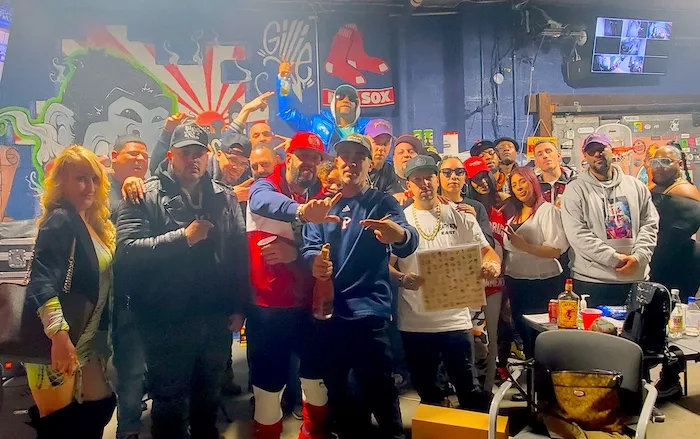
Like Perez, most of his friends who became the first members were from Lawrence. He grew up in the post-industrial city’s Stadium Projects, but whether people lived in public housing or had moved into a private residence as he had, it was increasingly hard to consume on the homefront. These are all issues that are coming up now in discussions around what social consumption licenses will look like, since people in urban neighborhoods need lounges asap—whether because they rent instead of own, or because of tight quarters, or because they live in a federally-funded public housing development that evicts or fines for any kind of smoking. But in 2018, Perez was navigating these problems early in the game, head on, and in real time.
“We were going through experiencing these new apartments like the Monarch Lofts where you can’t smoke,” Perez said. “They built a smoking section a hundred yards away. So instead of that, we had the space, and people would come, watch a [boxing match or MMA] fight, smoke, do whatever.”
It didn’t take long for the concept to catch on. Though snack sales and collections for special game and party nights barely covered expenses, the sacrifice was worth it to see people from across the local, rap, and weed communities congregating—for BYOC perks, of course, but really for the company. But just as things were figuratively blowing up for the Green Thumb Gorillaz, on Sept. 13, 2018, their neighborhood burst into literal flames when a gas line under Lawrence became over-pressurized. The resulting 10-alarm event involved at least three explosions and set off simultaneous blazes in Lawrence, Andover, and North Andover, and led to tens of thousands of evacuations, widespread utility outages, 25 hospitalizations, and the death of 18-year-old Leonel Rondon.
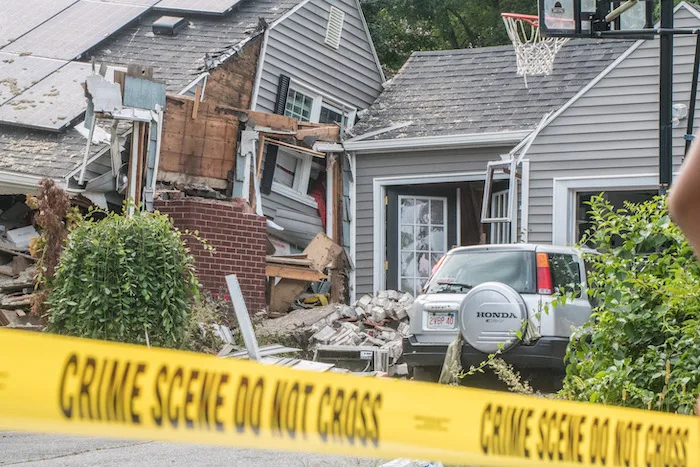
“The thing I remember the most was that it felt apocalyptic.” Perez spoke about the terrifying scene, and how one of his cousins lived on Waverly Road by the Lawrence-North Andover line, just blocks from where a chimney snapped off a house and crashed through Rondon’s SUV with him in it. Perez continued, “They had checkpoints at every entrance into the city, and you had to wait in line so they could make sure you lived in Lawrence. And then you could go in at your own risk to get your belongings, but they told you they were going to be going into businesses and houses and cutting locks.”
One of the explosions—on Salem Street in Lawrence—was just blocks from the GTG Clubhouse. “We wanted to make sure our building was good,” Perez said. “It was crazy. When we got to the door, all of the lights were still out and the locks were cut. We had weed stuff there—bongs, rolling trays—but we kept it legal. [Gas workers, presumably accompanied by first responders] saw everything, and they never came back.”
With his immediate family and most friends and relatives back in their homes after a few awful nights in hotels and on couches, Perez returned to an empty hangout on Sept. 20. By then, federal, local, and state efforts were underway to support more than 8,500 families and 600-plus businesses, with approx. 15,000 people evacuated for days and gas service for about 8,000 households shut off due to safety concerns.
“After about a week, we had access at our own risk,” Perez said. After that, “We had to pay rent, but we weren’t really allowed to go there.” The aftermath humbled Perez and his crew: “Everyone knows it’s an old mill town. We grew up where everyone always thought no one cared about us—and this was the proof.”
Since private cannabis clubs existed in legal limbo, especially in 2018, the Green Thumb Gorillaz weren’t able to access any government grants for impacted businesses. Perez said, “We still kept it going for a little bit after that, but it fizzled out. We weren’t eligible for the vouchers because it was a commercial unit, and we had to pay rent for two months when we weren’t really able to do anything. We couldn’t sell snacks, or drinks, but we had to pay all of the bills for the place. Everybody else had some kind of help, but we were cannabis related, so there was no help for us.”
With his speakeasy closed and his club dreams on hold, by the time that COVID came, Perez had recommitted his time away from the hydroponics stores to music—recording with ST. Da Squad, as well as with New England weed rap impresario Myster DL. Also a producer and director who has worked with Cypress Hill, DL delivers beats, ideas, and visuals fit for an MC who sells grow lights and pioneered one of the commonwealth’s first cannabis clubs.
“I got with DL and he said, Let’s just start recording, and now we’re three albums in,” Perez said. “I still reference the streets, but I’m a weed rapper now.”
As for any past regrets or upcoming plans to open another clubhouse in the future …
“At the end, the only thing that stopped us was the landlord,” Perez said. “One month, they just decided they wanted the place back. So now, the way I look at it is, next time, I’m going to buy the building so that can’t happen again.”







